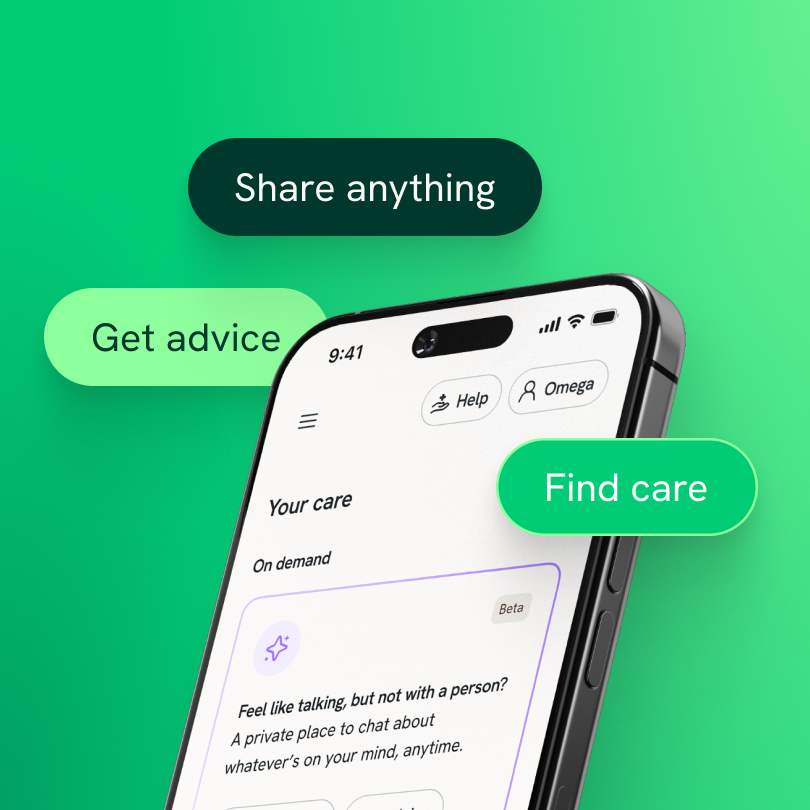Jump to section
The theme for this year’s Black History Month is Black Health and Wellness. This is a critical focus as we continue navigating a pandemic that has disproportionately affected Black communities and weighed heavily on Black healthcare professionals.
We were already on the brink of a mental health crisis before COVID-19 hit, and the pandemic layered on universal stressors including fear of contracting the virus, continual uncertainty, and managing remote work and remote school.
But the Black community is experiencing additional traumatic stressors, including:
- Higher COVID rates and COVID-related hospitalizations and deaths
- Systemic racism, personal experiences with racism, and the fear of retaliatory violence and police brutality
- Pressure to “show up” and “be responsive” at work during protests and tragedies like the murders of George Floyd, Ahmaud Arbery, and Breonna Taylor
Why Black mental health matters
Racism and related traumas are pervasive barriers to mental health, and racial microaggressions are correlated with depression.
Adult Black Americans are 20% more likely to report serious psychological distress than white adults, and only one in three receive the mental healthcare they need. When Black Americans do receive mental healthcare, it’s less likely to be evidence-based and culturally-competent care.
There’s also a strong stigma. One study shows that “63% of Black people believe that a mental health condition is a sign of personal weakness.”
HR leaders have an opportunity to help Black employees and their families overcome this stigma and get access to high-quality care from a provider who understands them completely.
It’s equally important to intentionally create a diverse, inclusive, and mentally healthy workplace where all employees have a strong sense of belonging. Here are three ways HR leaders can support Black employees and thoughtfully build that kind of culture.
Address stress and distress internally
In May of 2020, the murder of George Floyd sparked a national uprising—but his death is part of a long history of racial violence. As tragedies continue happening and systemic issues arise, it’s critical to create safe spaces to talk about it in the workplace.
Not everyone will be able to process at work, but addressing national news of injustice is a starting point. Offer opportunities for employees to have open conversations about these tough topics, and whenever possible, engage a qualified consultant to lead those conversations.
Comprehensive EAP’s like Spring Health are equipped to help groups cultivate curiosity, connection, and support around mental health stressors. Healing looks different for everyone, and if individual care is needed, Spring Health has a diverse provider network. We use clinically validated technology to pinpoint and deliver exactly what will work for each person, whether that’s therapy, coaching, meditation, or medication.
Practice radical empathy, intentionally model this for your team, and work toward creating a ripple effect within your workplace. Actively strive to understand people’s feelings and experiences, and when your Black employees experience a tragedy within their community, give them the space and flexibility they need to process and heal.
Create a truly diverse and inclusive culture
“When we’re talking about diversity, it’s not a box to check. It is a reality that should be deeply felt and held and valued by all of us,” says American filmmaker Ava DuVernay.
What would change within your workplace if diversity became a core value for all your employees—instead of a box to check? Diverse cultures are mentally healthier cultures that foster creativity and innovation, new ideas, perspectives, and ways of thinking, and better decision making.
When organizations have successful DEIB (Diversity, Equity, Inclusion, and Belonging) initiatives in place, their people reflect higher rates of productivity and performance, and they have a sense of belonging—a fundamental need that’s become even more vital in the midst of the pandemic and the Great Resignation.
This is more than a retention tool. It requires a commitment to DEIB, and starts by asking your employees what they think is missing, and what they need to thrive and show up as their authentic, best selves at work.
You may also want to ask what Employee Resources Groups (ERGs) they want to be a part of, what kind of conversations they’d like to see happening at work, and ways the company can support their mental health.
Listen carefully to what they tell you, design an action plan, and implement it.
Become a mental health ally
Here are four ways to support your Black coworkers as an ally:
- Listen to the Black people in your life. Acknowledge the impact of racism and inequality on the Black community and listen to shared thoughts and emotions without judgment.
- Offer support but allow space if needed. Check in with the Black people in your life but avoid pushing someone to share if they are not feeling ready to talk.
- Support mental health organizations helping the Black community. Research and support organizations that promote Black mental health, such as the Black Mental Health Alliance and Black Girl Smile.
- Participate in diversity, equity, inclusion, and belonging groups and initiatives. If your organization offers them, these are a great way to learn about the experiences of others and become more proactive within your community.
Lastly, research and support mental health organizations that are helping the Black community, such as the Black Mental Health Alliance and Black Girl Smile.
Watch this webinar on demand to learn more about how to create healing spaces for racial trauma while helping your people thrive.






